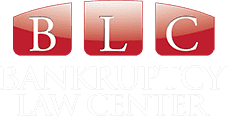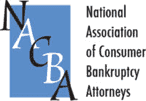
Managing debt and financial risks as a freelancer is an important endeavor for those who wish to remain financially secure. With the ever-changing economy, it is essential to have strategies in place to ensure that debt levels are manageable and that financial risks are kept at bay. This article will provide tips and strategies for managing debt and financial risks effectively as a freelancer.
The first step in managing debt and financial risk is to be aware of the potential risks associated with being a freelancer. It is important to understand the sources of income, the costs associated with maintaining income streams, and the potential liabilities that could arise from taking on too much financial risk. Additionally, having an understanding of personal budgeting practices can help in developing strategies for managing debt and financial risk effectively.
Finally, having a plan in place for understanding how different types of debts and investments can impact overall financial stability is crucial to successful management of debt and financial risk. Knowing which debts are more costly than others, which are more tax-advantaged, or which investments offer greater returns can help reduce overall risk levels while still allowing for growth opportunities. By understanding these factors as well as developing strategies for managing debts and reducing financial risks, freelancers can create a successful path towards long term financial security.
Creating A Budget
Creating an effective budget is essential for freelancers who want to manage their debt and financial risks. Budgeting helps ensure that there are enough funds set aside to cover basic expenses, pay taxes and make loan payments. By developing a budget as a freelancer, you can also identify ways to save money and achieve other financial goals.
For starters, it is important to track your income and expenses by creating spreadsheets or using budgeting apps. This will help you understand how much money you have coming in and going out each month. Then you can set realistic spending limits on non-essential items such as entertainment, dining out or vacations. It is equally important to set aside money for savings, retirement investments, emergency funds and taxes. In addition, keep in mind that if your income fluctuates, you may need more money saved than someone with a steady paycheck. With careful planning and discipline, budgeting can help freelancers stay on top of their finances while managing debt and financial risks successfully.
Building An Emergency Fund
Creating a budget is the first step towards financial freedom as a freelancer. With that in mind, it’s also important to build an emergency fund. An emergency fund can provide a buffer in times of financial hardship, allowing you to continue working without having to worry about unexpected expenses. Here are four tips for building an emergency fund:
Know your needs: Before setting aside money for an emergency fund, it’s important to determine how much you need in order to cover any unexpected costs that may arise. Consider typical expenses such as rent or mortgage payments, utilities, and food and factor those into your total amount needed for the emergency fund.
Set aside money from monthly income: To make sure you’re setting aside enough funds for an emergency fund, try allocating a fixed portion of your monthly income towards it each month. This can help you reach your goal faster and make sure that you never miss out on saving up for an emergency fund when things get hectic with work or other life events.
Utilize tax returns and bonuses: If possible, use any extra money such as tax returns or bonuses to contribute to your emergency fund savings account. This can help add up quickly if done regularly and will ensure that you have adequate funds when needed most.
Invest wisely: Once you have reached your goal amount for the emergency fund, consider investing the money in low-risk investments such as certificates of deposit (CDs) or money market accounts which offer higher yields than traditional savings accounts and can be easily liquidated if necessary.
By following these steps, freelancers will be better prepared financially when faced with unexpected issues and maintain financial stability throughout their freelance career. Building an emergency fund is essential part of managing debt and risks successfully as a freelancer and should not be overlooked when creating a budget plan.
Managing Debt
Imagine for a moment that debt is like a runaway train. It starts off slow, but it can quickly pick up speed, leaving you feeling out of control and in danger of being derailed. As a freelancer, it is important to take steps to manage your debt and financial risks before they become overwhelming. Here’s how to get out of debt, set aside money for future needs and budget your money wisely.
The first step is to get out of debt by creating a repayment plan and sticking with it. You should also consider consolidating your loans or transferring credit card balances to cards with lower interest rates if possible. If you have student loans, look into income-driven repayment plans or loan forgiveness programs. Additionally, make sure you are paying more than the minimum payment each month so that you can pay off the balance faster and save on interest payments in the long run.
The next step is setting aside money for future needs such as retirement savings or emergency funds. Make sure you are putting away enough each month to reach your goals; this will help provide financial stability in the long-term. Finally, create a budget that works for you and stick with it—this means budgeting your money wisely by tracking spending and understanding where your money is going each month. Track all of your expenses using an app or spreadsheet so that you know exactly what is coming in and what is going out each month. This will help ensure that you are not overspending or taking on too much debt.
Avoiding Common Financial Pitfalls
As a freelancer, managing debt and financial risks is key for success. Unfortunately, certain pitfalls can arise without proper planning and caution. To avoid common financial pitfalls, it is important to be aware of the most frequent issues that freelancers face. Tax-related problems are among the most common issues. It is therefore essential to consult with a tax professional who specializes in advising freelancers to ensure that taxes are paid appropriately and on time. Additionally, budgeting is an important tool for any freelancer. Proper budgeting will help prevent excessive spending and can help identify areas where more savings can be made.
Other tips for avoiding financial pitfalls include setting aside money for retirement, understanding the legalities of freelance work such as filing contracts, tracking business expenses carefully, and seeking out financing options if needed. Understanding how to properly manage money as a freelancer can be difficult but there are resources available to help guide freelance businesses through this process with success. By researching these topics before beginning a freelance business and staying informed about changes in the industry, freelancers can stay ahead of potential risks and find strategies that work best for their individual situation.
Frequently Asked Questions
What Is The Best Way To Manage Multiple Sources Of Income?
Recent studies suggest that nearly one in three American freelancers have multiple sources of income. This statistic highlights the need for effective management of finances for successful freelancing. To achieve financial stability, it’s important to understand how to manage your multiple income streams.
One strategy is to plan ahead and budget accordingly. Start by estimating your monthly expenses and then compare that to your expected income. This will help you identify any shortfalls or potential savings opportunities. Additionally, make sure you set aside a percentage of each paycheck for taxes as these are often due quarterly. It may also be beneficial to invest in some form of financial planning software or an app like Mint which can help track your spending and help you stay on top of deadlines and payments.
Creating a system for organizing your various sources of income can be beneficial too. Establishing different accounts for different types of revenue such as savings, investments, and expenses can help keep finances more organized and easier to manage. Finally, setting aside money into an emergency fund is also a great way to protect yourself financially in case something unexpected happens or if you experience cash-flow issues due to delayed payments from clients. Having this safety net will provide peace of mind when managing multiple sources of income as a freelancer.
How Can I Track My Expenses To Ensure I Stay Within My Budget?
Tracking expenses is an important part of managing finances as a freelancer, especially when dealing with multiple sources of income. It allows you to better plan and budget for future expenses and helps ensure that your overall income does not exceed your spending.
There are several methods for tracking your expenses as a freelancer. Using a spreadsheet or budgeting app can be a great way to keep track of all of your transactions and categorize them based on the type of expense. This helps you easily identify patterns in your spending and identify areas where you may be overspending. You can also set up alerts to remind yourself when bills are due or when certain expenses will be charged to your account. Additionally, using credit cards or setting up automatic payments for recurring expenses can help make tracking easier by keeping all of your purchases in one place.
Overall, it’s important to stay organized and consistent with tracking your expenses as a freelancer. Staying on top of these responsibilities ensures that you are aware of where your money is going and that you remain within your budget. Regularly monitoring these records will give you the insight necessary to make smart decisions about how best to manage multiple sources of income.
What Steps Should I Take When Faced With An Unexpected Financial Burden?
Facing an unexpected financial burden is a daunting task, and can leave many feeling overwhelmed and powerless. To navigate such a situation with success, it’s important to take specific steps that prioritize safety and stability. Fortunately, there are strategies available to help freelancers manage debt and financial risks in the face of an unanticipated burden.
Firstly, it’s paramount to assess the situation objectively. Taking stock of what exactly the financial burden is, how much money is needed, and when it needs to be paid by will enable a freelancer to develop a workable plan and timeline for repayment. Additionally, seeking out advice from trusted financial professionals or organizations may also be beneficial. Such experts can provide insight into potential solutions for managing debt even in difficult times.
When it comes to paying off debts, freelancers should consider the following options:
Short-term Solutions: These include seeking alternative income sources (e.g., side jobs or freelance gigs) or cutting back on expenses.
Priority payments: Allocating funds towards essential bills first (e.g., rent/mortgage) ensures that freelancers don’t fall behind on existing obligations while addressing new ones.
Consolidation: Combining multiple debts into one larger loan with more manageable repayment terms could help ease financial strain in certain cases.
Negotiation: Asking creditors for more lenient payment plans or reduced fees might be worth exploring if feasible options are unavailable.
Ultimately, the key to managing unexpected financial burdens as a freelancer is to remain proactive and informed about all potential solutions available—and then implement those that make sense given their unique circumstances. With the right strategies in place, freelancers can successfully manage debt and minimize any long-term risks associated with unexpected expenses or emergencies.
How Can I Maximize My Income While Minimizing My Financial Risks?
When it comes to managing money as a freelancer, maximizing income while minimizing financial risks is key. This can be challenging, especially when faced with unexpected financial burdens. However, there are steps one can take to ensure that their finances remain healthy.
First and foremost, it is important to have a budget in place for all of your expenses. Knowing exactly how much you are spending each month on bills, groceries and other necessities will help you plan for potential financial risks down the road. It is also important to invest in an emergency fund so that if an unexpected bill or expense arises, you can cover it without stressing out about where the money will come from. Additionally, look into tax deductions and other ways to reduce your taxable income. This can help free up more money for other investments or savings, which could help you increase your income in the long run.
It is also beneficial to diversify your income sources whenever possible. Consider taking on additional freelance projects or side jobs that could provide some extra cash flow each month or even create passive streams of income such as investing in stocks or real estate. Keeping multiple streams of income open allows you to better prepare for any unexpected financial burdens while still having a steady stream of funds coming in each month should one source of income unexpectedly decrease or dry up altogether. Taking these steps now can help protect your finances later on and set yourself up for greater success in the future.
What Strategies Can I Use To Pay Off My Debt Quickly?
According to a survey from the National Foundation for Credit Counseling, more than 40% of Americans have difficulty paying off their debt. It can be especially challenging for freelancers who manage their own finances. To help pay off debt quickly, it’s helpful to have strategies in place that allow for maximum income while minimizing financial risks.
One effective strategy is to create a budget and stick to it. This includes setting aside money each month to cover necessary expenses as well as devising a plan to pay off debts. When creating a budget, it’s important to analyze fixed costs like rent or loan payments and variable costs such as groceries, gas and entertainment. By doing so, freelancers can allocate their resources effectively and better anticipate how much they’ll need each month to stay on track with their debts.
Additionally, freelancers should consider using debt consolidation services which combine multiple loans into one payment at a lower interest rate. This can make it easier for freelancers to pay off their debts over time by reducing the amount of interest paid per month. They may also want to explore options such as credit counseling or peer-to-peer (P2P) lending which allows them to borrow money from individuals rather than banks or other traditional lenders.
By taking the time to understand their financial situation and researching the various options available, freelancers can set up strategies that will help them manage their debt in an efficient and cost-effective way. With the right approach, paying off debt doesn’t have to be overwhelming - it can be an achievable goal that brings peace of mind and financial security over time.
Conclusion
Debt is a reality for many freelancers. It can be difficult to manage multiple sources of income while also trying to pay off existing debt and minimize financial risks. It is important to take proactive steps to ensure that debt does not become unmanageable.
Creating a budget, tracking expenses, and taking steps when faced with unexpected financial burdens are all key parts of managing debt as a freelancer. Strategies such as paying off debt quickly and maximizing income while minimizing risk are also essential for success. It is ironic that the same freedom that draws people to the freelance lifestyle can also lead to financial insecurity if the proper steps are not taken.
Fortunately, there are resources available to help freelancers stay on top of their debts and reduce their financial risks. With careful planning and dedication, it is possible for freelancers to enjoy both freedom and financial security by making smart decisions about their spending, budgeting, and debt management strategies.









